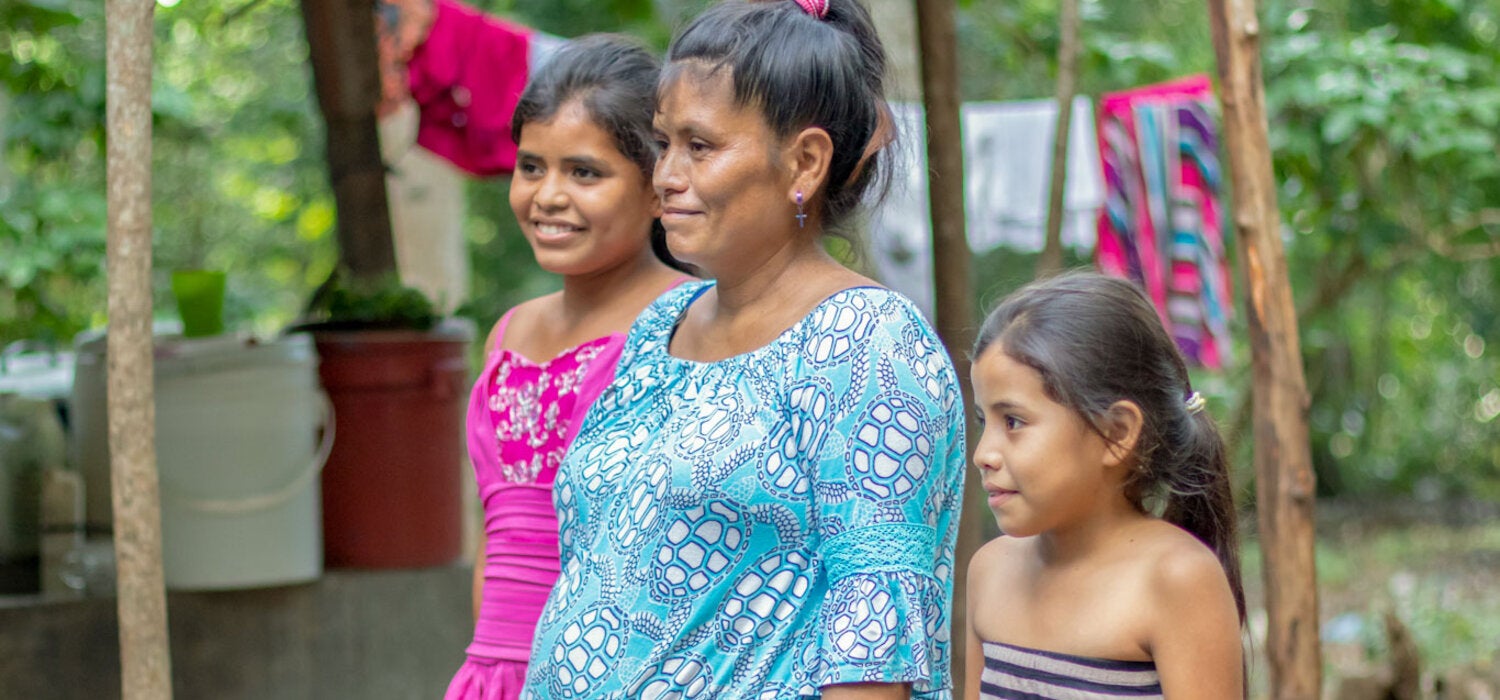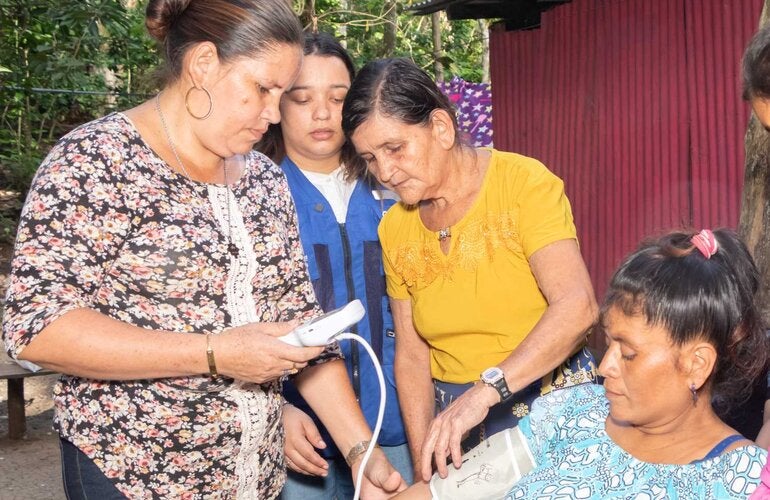In Honduras, teleconsultations emerged as a critical healthcare solution during the COVID-19 pandemic. With a maternal mortality ratio of 58 per 100,000 live births and 18 neonatal deaths per 1,000 live births, the country is committed to addressing the challenges of access to prenatal care services to reduce delays in medical check-ups, identify signs of danger promptly, and prevent maternal mortality. "The implementation of the prenatal care model through teleconsultations improved direct contact with users and optimizes access and quality of care for pregnant women," says Gissela Fernández, Municipal Health Coordinator for the Municipality of Trinidad.
The initiative, which was successfully implemented with the support of Global Affairs Canada through the Improved Health of Women and Adolescent Girls in Situations of Vulnerability (IHWAG) Project, represented a crucial milestone in improving maternal and neonatal health outcomes in communities in situations of vulnerability in the country. "This experience serves as a standout example of how collaborative efforts between governments, international organizations, local health centers, and community leaders can facilitate innovative solutions to address healthcare challenges and improve health equity," expresses Bremen De Mucio, Regional Maternal Health Advisor at PAHO.
Involving midwives and volunteer health workers in telemedicine consultations
Paula Fajardo, a midwife in the municipality of Trinidad, in Santa Bárbara, has over 40 years of experience caring for women and their babies. Fajardo is one of the women who participated in the teleconsultation project and even trained her daughter, Maria Cruz.
Fajardo and Cruz have strengthened their skills in taking blood pressure, identifying risk signs that require women to be referred to healthcare centers, accompanying pregnant women, and providing monitoring information to healthcare professionals. "Patients are very happy when I accompany them. I remind them to record everything in their notebooks for when they are called from the healthcare center. I also remind them to take care of themselves and maintain good habits," says Fajardo.
The capacity-building component of this initiative began with the training of four volunteer health workers who learned to implement teleconsultations in three prioritized communities in the municipality of Trinidad. "The support of volunteers and midwives to pregnant women and their families is essential for improving community relationships with health services and contributing to the reduction of maternal mortality," explains Amalia Ayala, Health Systems and Services for the Life Course Advisor in the PAHO Honduras office, who leads the implementation of the IHWAG Project in the country, which is also being implemented in Bolivia, Colombia, Ecuador, Guyana, and Peru.


